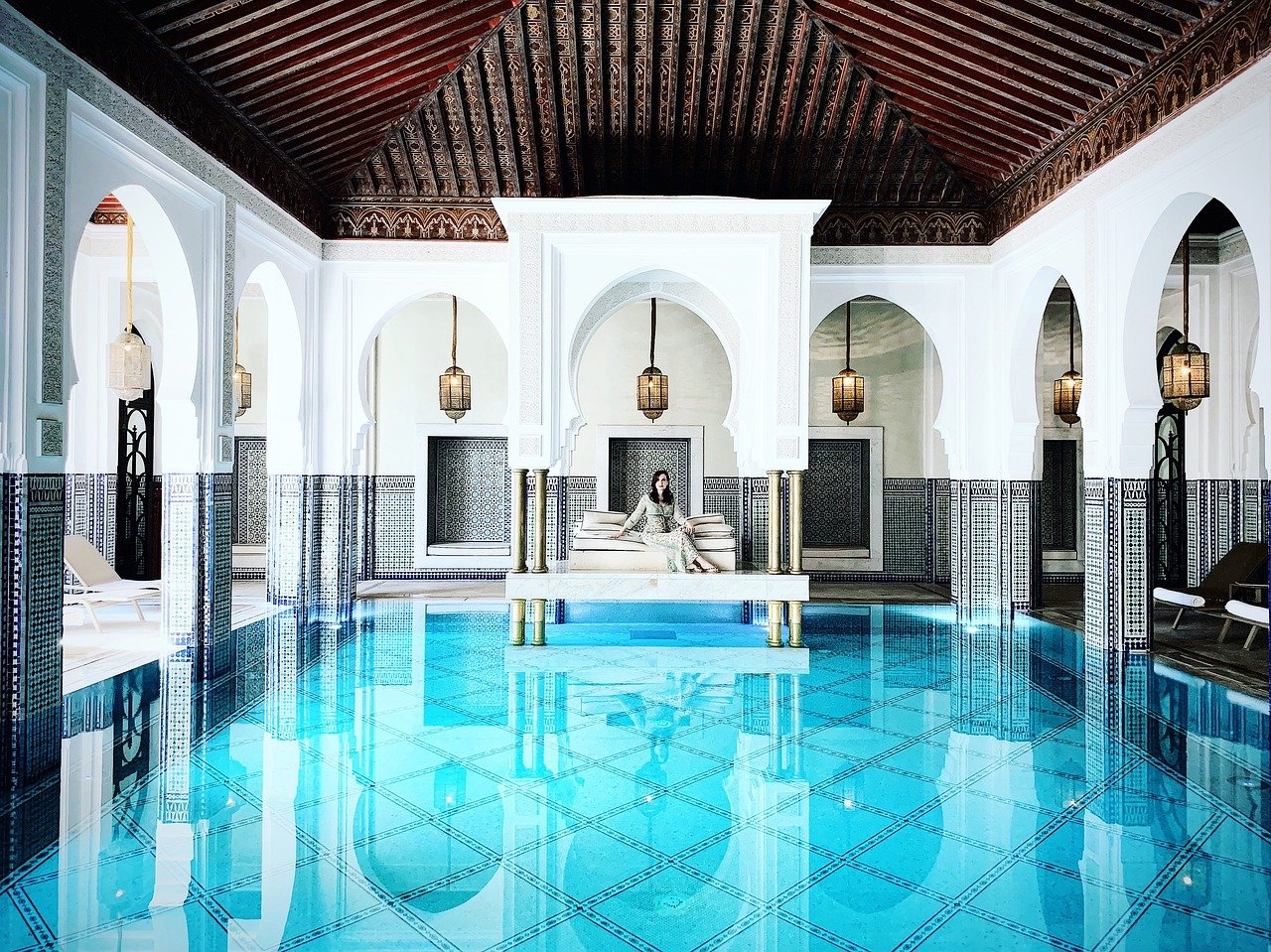Hammam rituals: a steamy journey through Moroccan tradition
Step into a Moroccan Hammam, and you're stepping into a portal. Not just between hot and cold rooms, but through centuries of history and culture. These aren't mere bathhouses; they're sanctuaries for both body and soul, where ancient cleansing rituals dance with modern tranquility.
Hammams, or "houses of heat," trace their roots back to Roman and Byzantine bathhouses, adopted and reimagined in Islamic culture. Beyond hygiene, they were social hubs, preparing Muslims for prayer and fostering community through shared steam and laughter. Hammams became integral to Moroccan life, woven into the fabric of its cities and traditions.
A typical Hammam journey unfurls like a story. Gentle warmth welcomes you, loosening muscles and preparing your skin for the ritual ahead. The skilled "Kessala" (attendant) becomes your guide, dousing you with warm, rose-infused water. Then comes the star of the show: Moroccan black soap, rich in olive oil and eucalyptus, slathered on and meticulously buffed with a Kassa glove. Dead skin surrenders under its magical touch, revealing smooth, radiant skin beneath.
Next, Rhassoul clay takes center stage. This mineral-rich earth slathers on like a velvety mask, drawing out impurities and leaving the skin soft and supple. As you bask in its warmth, the Kessala's rhythmic massage kneads away tension, sending waves of relaxation through your body.
But the Hamam experience is more than just physical pampering. It's about connection. Here, conversations flow as freely as the water, whispered secrets mingling with the clinking of water buckets. Women gather in the steamy embrace, sharing stories and laughter and forging bonds that transcend age and background.
Emerging from the Hammam, you're reborn. Renewed skin, released tension, and a spirit cleansed by tradition. You carry the echo of warm tiles and whispered conversations, a piece of Moroccan history woven into your own well-being.


